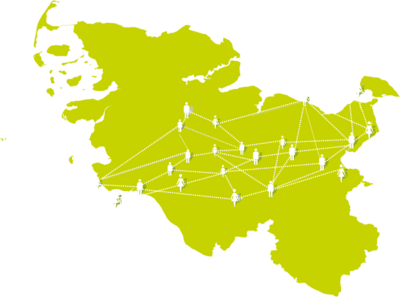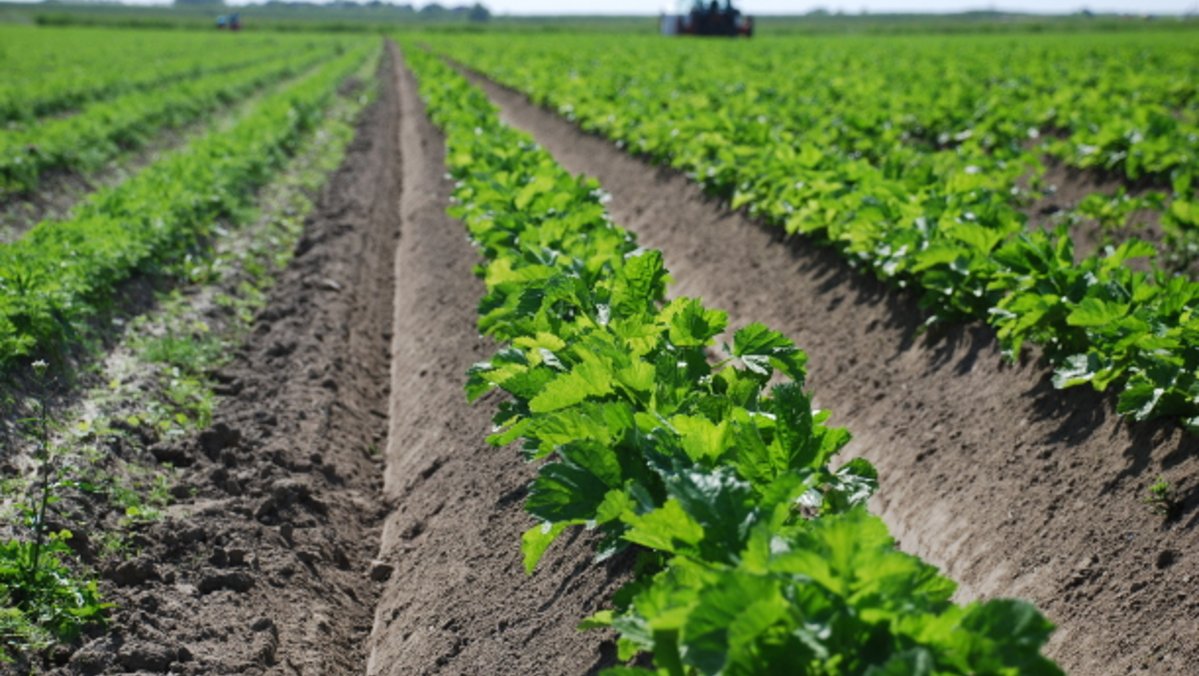What is EIP-Agri?
EIP-Agri is the abbreviation for ‘European Innovation Partnerships for Agricultural Productivity and Sustainability’. The aim of the EIP-Agri funding programme is to increase agricultural production while using fewer resources, thereby making it more sustainable.
Agriculture and research are better interlinked through EIP in order to bring innovations into practice more quickly. The bottom-up approach helps here: problems in practical agriculture are tackled jointly by partners from advisory services, companies, associations and organisations as well as science and research in so-called Operational Groups (OGs).
The implementation of EIP started very early in Schleswig-Holstein compared to other European countries. To support the new funding programme, the then Ministry of Agriculture established the EIP Agrar innovation office at the Schleswig-Holstein Chamber of Agriculture in Rendsburg back in 2014.
The task of the coordination centre is to support idea providers, innovators from the field and operational groups (OG) as a nucleus for innovative projects in the state. The Innovation Office organises both networking and knowledge transfer within the framework of EIP and advises applicants in all phases of their project development and application.
53 projects from 5 calls have been selected by a jury since 2015 and have been or are being implemented since then. The projects have been funded with around €21 million in Schleswig-Holstein to date.
What has EIP-Agri created in Schleswig-Holstein?

The multi-actor principle is at the centre of EIP. Cooperation between various stakeholders from practice, consulting and science is crucial.
Since the start of funding in 2015, EIP-Agri has established itself as an effective instrument for agricultural innovation in Schleswig-Holstein. The idea of solving problems from agricultural practice together with research, advisory services and other partners has worked in practice - and produced real successes.
Over the last ten years, 53 projects from a wide range of areas have been realised - from the barn to the field to digital applications in the office. The focus was not on research in an ivory tower, but on solution-orientated collaboration with direct benefits for businesses.
Examples of this include
- new feeding concepts in dairy farming that reduce nitrogen surpluses,
- technical solutions for animal-friendly milking or the assessment of animal welfare indicators on the farm,
- digital tools for efficient pasture management or AI-supported systems for fertilisation and sowing,
- as well as climate adaptation projects, for example in the area of moorland management or through biodiversity-promoting pasture concepts.
You can find out more about the individual projects under the ‘EIP innovation projects’ tab.
The development of the topics is striking: While the focus was initially on traditional agricultural issues - such as feed, crop rotation or animal health - there has been a clear focus on digitalisation and automation in recent years. Projects on robotics, AI or real-time data exchange are now a natural part of the EIP toolkit.
The network effect that EIP-Agri has triggered should also not be underestimated: Around 370 agricultural businesses have taken part in a project so far - that corresponds to around three per cent of all farms in Schleswig-Holstein. Many of them are now well networked, co-operate across farm and industry boundaries and have established contacts with science, consulting or start-ups beyond the project work.
The fact that these developments have been successful is also due to the structuring support provided by the EIP-Agri innovation office. Over the past ten years, it has not only supported applicants, but also initiated new ideas at an early stage, brought stakeholders together and ensured that good project approaches do not fail due to bureaucracy or a lack of coordination.

